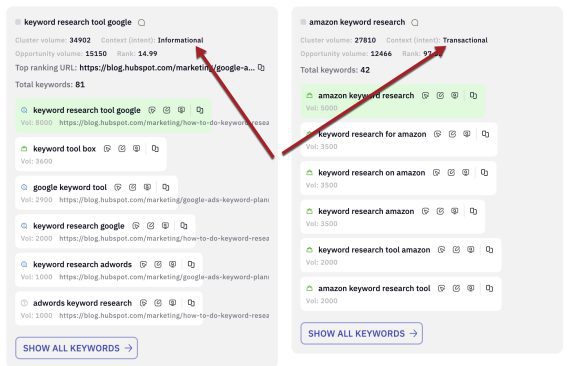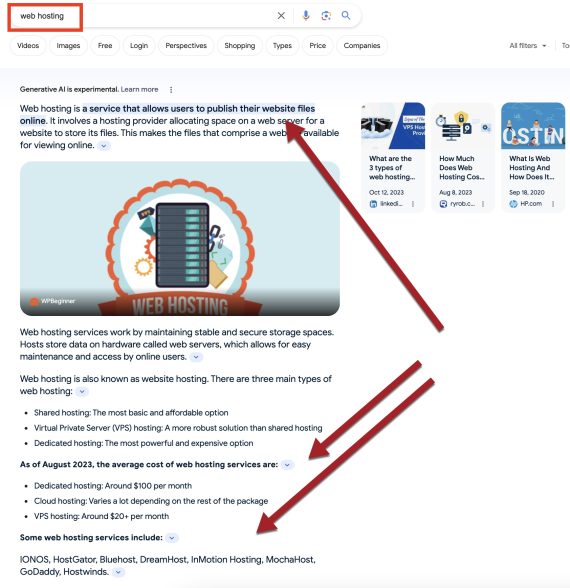Optimizing for searchers’ intent has always been key for top organic rankings. That’s especially the case with Google’s helpful content algorithm, which is intent-focused.
I’ve listed tools to analyze and filter keywords by search intent, but generative AI has uncovered new ways of performing that task.
Here are four AI-powered tools for innovative search-intent analysis.
Keyword Insights
Keyword Insights is a search-optimization platform using a proprietary “Keyword Context” metric. The tool searches Google for a particular keyword or cluster and analyzes the results for intent signals.
For example, if most of the top 20 results were articles, Keyword Insights would assign a context as “informational.” If the results were product detail pages, the context would be “transactional.”
Keyword Context informs the tool’s additional features, such as content briefs and keyword discovery.

Keyword Insights assigns an intent metric to query — “informational,” “transactional,” or “other.” Click image to enlarge.
Optimo
Optimo offers a free, unlimited search intent tool. Insert up to 100 keywords per analysis, and the tool will describe what a searcher may be looking for in each case.
To test, I inserted seven hosting-related keywords. Here are those keywords with Optimo’s description of searchers’ likely intent.
- reCAPTCHA. “Understand the reCAPTCHA feature.”
- VPS Managed Hosting. “Purchase managed hosting solutions for a virtual private server.”
- SSH with Port Number. “Connect to a server using SSH with a port number.”
- Domain Purchase Sites. “Find a list of sites to purchase a domain name.”
- VPS. “Purchase a virtual private server.”
- PHP Max Upload Size. “Understand the maximum upload size of a PHP script.”
- MySQL Show Table Size. “View the size of a MySQL table.”
Optimo is handy for revealing searchers’ keyword intentions that may differ from your own.
SEO.ai
SEO.ai offers a free tool that analyzes a keyword and produces more descriptive alternatives. The tool provided these versions for “web hosting”:
- “Best website hosting providers,”
- “How to choose a website hosting service,”
- “Website hosting cost comparison,”
- “Website hosting reviews.”
When planning an article reviewing web hosting companies, I could input “website hosting reviews” for SEO.ai’s variations of that phrase:
- “Website hosting comparison,”
- “Best website hosting providers,”
- “Affordable website hosting options.”
The tool works best for identifying less competitive, long-tail keywords. It’s also helpful for discovering topics to support primary landing pages.
Google’s SGE
Google’s Search Generative Experience can help understand the intent of a keyword. For example, SGE’s snapshot for “web hosting” includes the definition, average prices, and hosting companies.
The snapshot signals mixed intent: an explanation, the cost, and potential providers. The results reveal various search journeys to create and optimize content accordingly.





